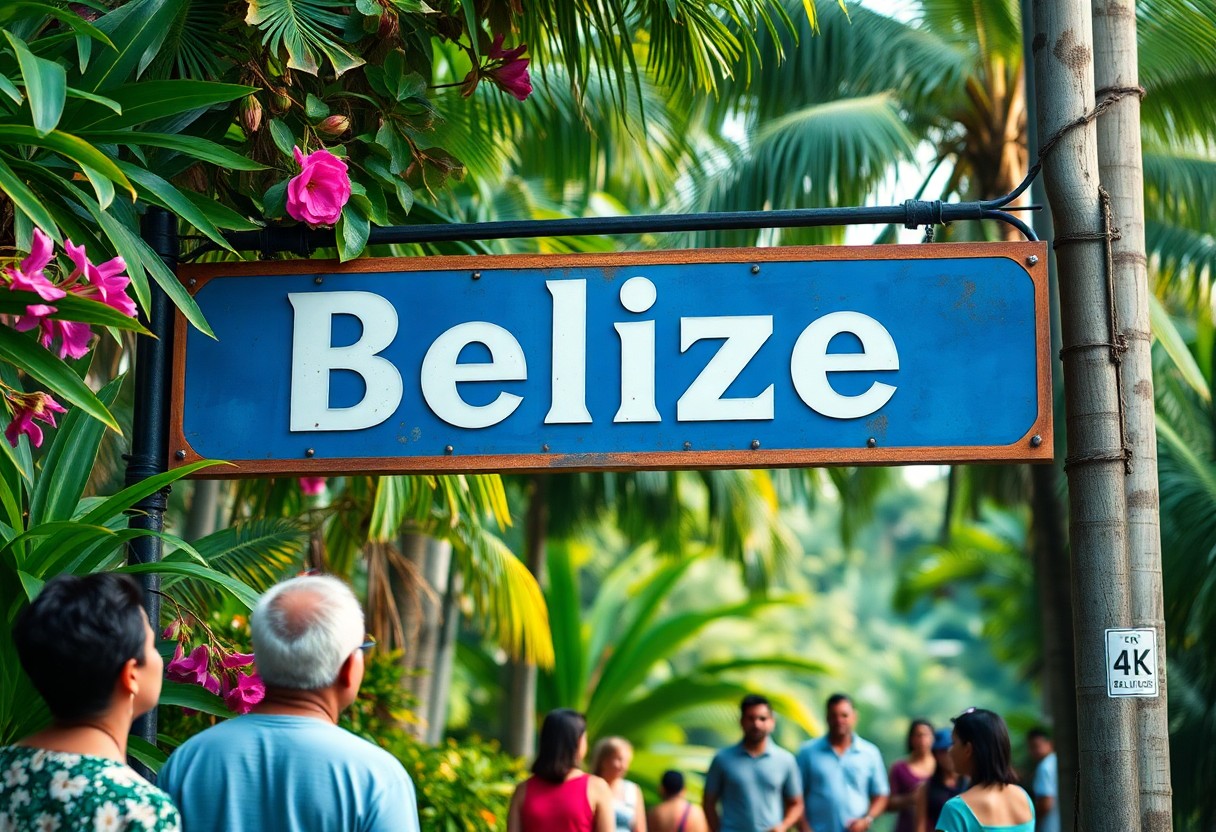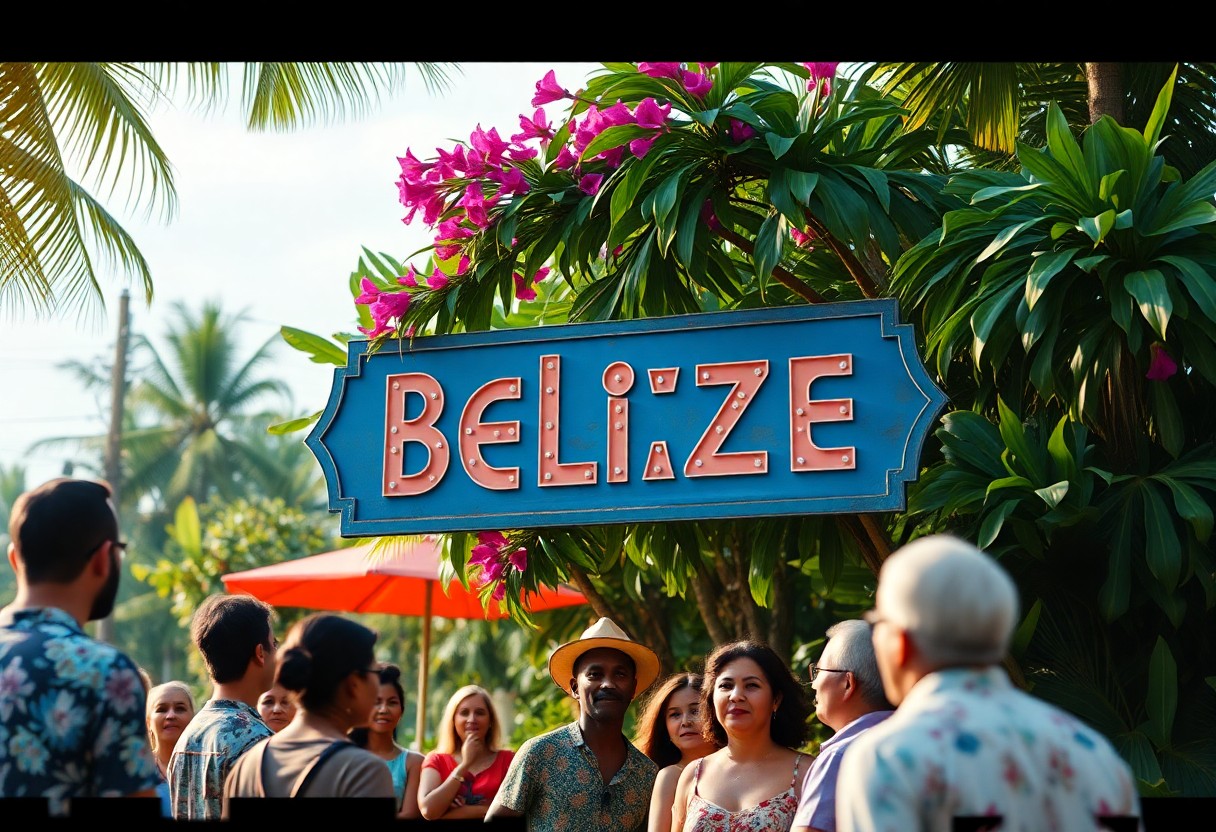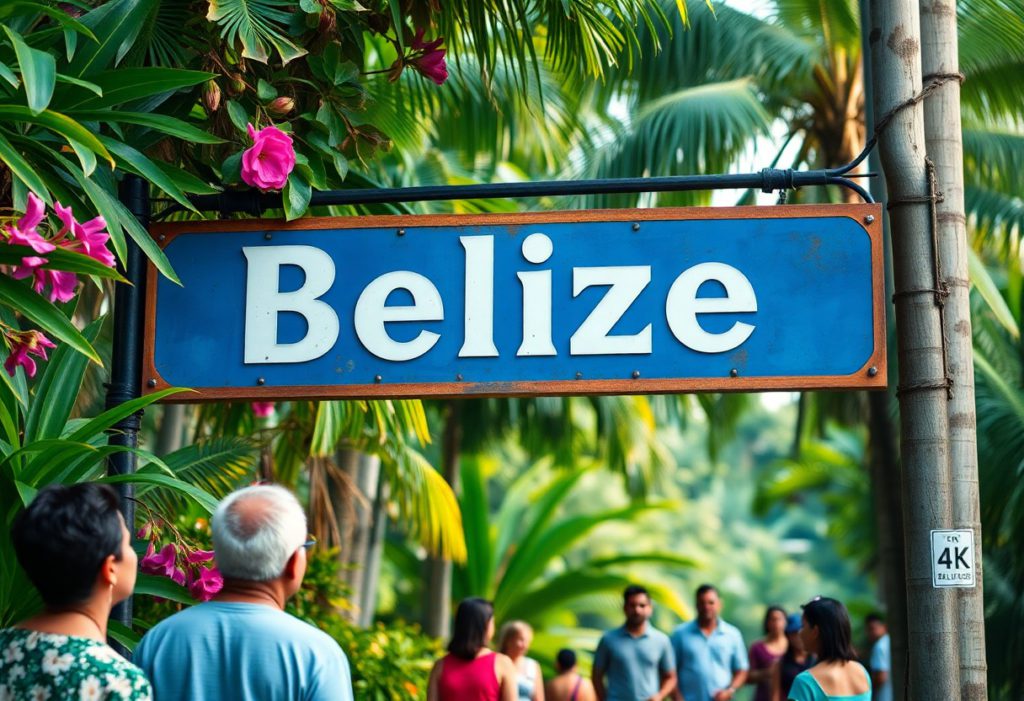Many individuals frequently find themselves perplexed by the correct way to pronounce the name of this stunning Central American nation. You may have encountered numerous attempts at pronunciation, but the precise way to say it is “beh-LEEZ”, rather than the often mispronounced “buh-LIZE” or “beh-LIZE.” Your quest for clarity concludes here, as this comprehensive guide is crafted to help you confidently articulate the name of this enchanting tropical destination. Mastering the accurate pronunciation not only enhances your communication skills but also demonstrates your respect for the local culture and the beautiful languages that thrive in this vibrant region.
Master Common Mispronunciations of Belize Effectively
Before delving into the complexities of pronouncing “Belize,” it is essential to familiarise yourself with the most prevalent errors that individuals often make. Mispronunciations can range from subtle nuances to completely incorrect renditions, which may inadvertently expose your unfamiliarity with the country’s rich linguistic heritage. By identifying these common mistakes, you will empower yourself to articulate the name more precisely and with increased confidence, paving the way for more meaningful conversations about this beautiful nation.
Understanding the Differences Between “Beh-leez” and “Beh-lize”
If you find yourself grappling with the correct pronunciation, it is common to feel torn between two widely used variations. The incorrect versions typically emphasise different syllables, which can create confusion for both native speakers and linguistic experts alike. Recognising these phonetic discrepancies is vital for effective communication, as it fosters understanding and helps bridge cultural divides, allowing you to connect more authentically with the people of Belize.
The Misguided Pronunciation of “Bee-lease” Explained
This particular variation represents a significant deviation from the correct pronunciation, straying far from the true articulation of the name. This specific mispronunciation highlights a fundamental misunderstanding of the word’s linguistic origins and its cultural significance. By comprehending these pronunciation errors, you can deepen your appreciation for the language and the diverse people who inhabit Belize, thus enriching your overall experience.
Grasping pronunciation subtleties, such as “Behlize,” adds another layer of complexity to your journey toward accurately pronouncing the name of this country. Focusing intently on the subtle distinctions that define authentic pronunciation is crucial. Native speakers often utilise a specific intonation that captures the essence of the word, emphasising the initial syllable with a gentle ‘beh’ sound, followed by a distinct ‘leez’ ending that resonates with the local dialect.
Uncover the Historical Origins Behind the Name Belize
If you have a curiosity about the linguistic roots of “Belize,” you will discover that the name carries a fascinating historical narrative that intertwines both indigenous and colonial influences. The etymology of the term is intricate, reflecting the rich cultural tapestry woven into the identity of this Central American nation. Gaining insight into the origins of the name not only enhances your connection to the place but also enriches your understanding of its complex history.
Exploring Potential Mayan Influences on the Name
One theory suggests that the name “Belize” may trace its origins to the <a href=”https://xamanekbelize.com/belize-s-diverse-ethnic-heritage-and-society/”>Mayan linguistic heritage</a>, potentially deriving from the Mayan term “belix,” which translates to “muddy waters” or may reference a specific river tributary. This linguistic connection underscores the deep indigenous heritage embedded in the nation’s naming conventions and cultural identity, highlighting the influence of the area's original inhabitants.
The Influence of Colonial History on the Name
The evolution of the name has been significantly shaped by European interpretations, particularly through Spanish and British colonial interactions. This linguistic transformation occurred as European settlers encountered and documented the region, gradually adapting indigenous names and terms to fit their own linguistic frameworks, leading to alterations in pronunciation that reflect their interpretations and phonetic preferences.
Understanding the Dynamics of Colonial Naming Variations
Variations in the name emerged during colonial periods, with Spanish explorers and British settlers providing differing phonetic renditions. The British colonisation notably impacted the present-day pronunciation, transforming indigenous phonetics into a more anglicised version that we now recognise as “Belize.” This shift reflects the broader historical context of colonial influence on language and the manner in which names evolve over time.

Effective Strategies for Mastering Pronunciation
While mastering the pronunciation of Belize may initially seem daunting, there are numerous effective strategies that can assist you in sounding like a local. Consider integrating these essential tips into your regular practice sessions:
- Focus on emphasising the initial syllable for clarity and impact
- Utilise a soft “z” sound to ensure accuracy
- Avoid prevalent mispronunciation pitfalls by being aware
By recognising and perceiving these nuanced sounds, you will empower yourself to articulate the name of the country with confidence and authenticity, enhancing your interactions with native speakers.
Phonetic Breakdown for Enhanced Clarity
When you break down the word phonetically, you will find that “Belize” is pronounced as “buh-LEEZ.” The stress accentuates the second syllable, creating a rhythmic and fluid sound that encapsulates the linguistic essence of this vibrant Central American nation, making it easier for you to remember and replicate.
Comparing Local Creole Pronunciation to Standard English
There are slight variations between the local Creole pronunciation and that of standard English when articulating the name Belize. However, the fundamental pronunciation remains consistent across diverse linguistic contexts, allowing for seamless communication with both locals and visitors.
To gain a better understanding of the linguistic nuances within Belize, it is vital to recognise that local Creole may introduce subtle accent variations. Native speakers often blend elements of English, Spanish, and Creole, resulting in a rich linguistic tapestry that reflects the country’s diverse cultural heritage and history, showcasing the beauty of its multicultural society.
Here’s the content for your blog post sections:
Key Factors Affecting the Pronunciation of Belize
Unlike straightforward language rules, the pronunciation of “Belize” is influenced by various linguistic elements. Several critical factors impact how you articulate this name effectively:
- Linguistic background of the speaker, including their native language
- Personal exposure to varying languages and dialects
- Regional dialect variations that exist
- Language learning experience and consistent practice
Recognising these nuances will greatly assist you in understanding the complexity behind the pronunciation of this name and will ultimately improve your communication skills when interacting with others.
Exploring Regional Variations of Pronunciation
Pronunciation variations can be observed across different geographical areas. You may notice subtle differences between North American, Central American, and British English speakers. These regional distinctions can profoundly influence how “Belize” is pronounced in everyday conversations, showcasing the rich tapestry of linguistic diversity.
The Importance of Cultural Context in Pronunciation
Cultural understanding plays a significant role in variations of pronunciation. Your familiarity with Belizean history and its rich linguistic traditions can greatly influence how authentically you articulate the name, reflecting your appreciation for the culture.
Pronunciation transcends mere phonetic accuracy; it serves as a reflection of a rich cultural heritage. When you pronounce “Belize,” you engage with the country’s diverse linguistic landscape. Native speakers genuinely appreciate it when you approach the pronunciation with respect and a sincere interest in their cultural nuances, fostering stronger connections.
Understanding the Benefits and Challenges of Correct Pronunciation
To fully grasp the implications of accurately pronouncing “Belize,” let’s explore the advantages and potential challenges through a detailed breakdown.
| Advantages | Challenges |
|---|---|
| Demonstrates linguistic respect and appreciation | May lead to initial awkwardness in conversation |
| Enhances clarity in effective communication | Could cause confusion among some listeners |
| Reflects cultural awareness and sensitivity | Requires dedicated practice to perfect |
| Improves overall language skills significantly | Involves a small learning curve for non-native speakers |
Showing Respect for Belizean Culture Through Pronunciation
If your aim is to show genuine respect for Belizean culture, mastering the correct pronunciation is more than just a linguistic challenge. It embodies your commitment to understanding and honouring the local linguistic traditions, thereby deepening your connection with the culture and its people.
Ensuring Clear and Effective Communication
While pronunciation may seem like a minor detail, accurate articulation is essential for preventing misunderstandings and facilitating more effective communication with native speakers. By mastering the nuances of “Belize,” you will navigate conversations with confidence and ease.
By pronouncing the name correctly, you convey your cultural sensitivity and linguistic competence, which can lead to more meaningful interactions and deeper connections with the people of Belize, enriching your travel experience.

Your Detailed Step-by-Step Guide for Pronouncing Belize
Now, let’s break down the pronunciation of “Belize” with a straightforward, step-by-step guide. To assist you in mastering this pronunciation, here is a detailed table that will walk you through each step:
| First Syllable | buh |
| Second Syllable | leez |
Comprehensive Breakdown of Each Syllable for Clarity
Understanding the syllables is crucial for accurately pronouncing “Belize.” The first syllable, “buh,” is soft and brief, while the second syllable, “leez,” features a sharp, clear sound that should be emphasised for correctness, ensuring that you convey the name accurately.
Effective Techniques for Practicing Mastery
If you aim to perfect your pronunciation, begin by articulating each syllable separately before blending them together. Engaging in slow, deliberate practice will build your confidence over time and help you achieve the desired sound.
You can utilise audio resources such as language learning applications or pronunciation videos to listen to native speakers. Listening and repeating is an excellent approach for training your ear and mouth to produce the correct sounds. Consider recording yourself and comparing your pronunciation with that of native speakers to effectively monitor your progress.
Final Insights on the Pronunciation of Belize
With this information, you now possess a deeper understanding of the nuanced pronunciation of Belize. Whether you opt for the American “BELL-eez” or the local Belizean “beh-LEEZ,” your choice signifies cultural awareness and linguistic respect. Armed with this knowledge, you can confidently engage in conversations about this Central American nation, appreciating the subtle variations in pronunciation. By mastering these pronunciation tips, you demonstrate linguistic sensitivity and an appreciation for regional speech patterns. Your newfound expertise will ensure you sound informed and culturally attuned when referencing this vibrant and beautiful country.
Answers to Commonly Asked Questions
What are the two primary pronunciations of “Belize”?
The two standard pronunciations are “buh-LEEZ” (most common in North America) and “beh-LEEZ” (favoured by many Belizean natives). Both pronunciations are considered linguistically acceptable, with the first variant being more prevalent on an international scale.
Are there pronunciation differences between English and Spanish speakers?
Indeed, Spanish speakers typically pronounce Belize as “beh-LEE-seh,” featuring a softer ending, while English speakers generally use “buh-LEEZ,” which has a more distinct “z” sound. These linguistic variations arise from regional phonetic patterns inherent in each language, showcasing the diversity of pronunciation.
What factors contribute to the existence of pronunciation variations for this country’s name?
Pronunciation differences stem from historical linguistic influences, including the impact of British colonial heritage, indigenous Mayan language roots, and Spanish colonial effects. The complex linguistic landscape of the country contributes to multiple accepted pronunciation methods, reflecting its rich multicultural history and the blend of languages that coexist within its borders.
The Article How to Pronounce “Belize” Correctly: A Quick Linguistic Guide appeared first on Belize Travel Guide
The Article Pronounce “Belize” Correctly: A Quick Linguistic Guide Was Found On https://limitsofstrategy.com


